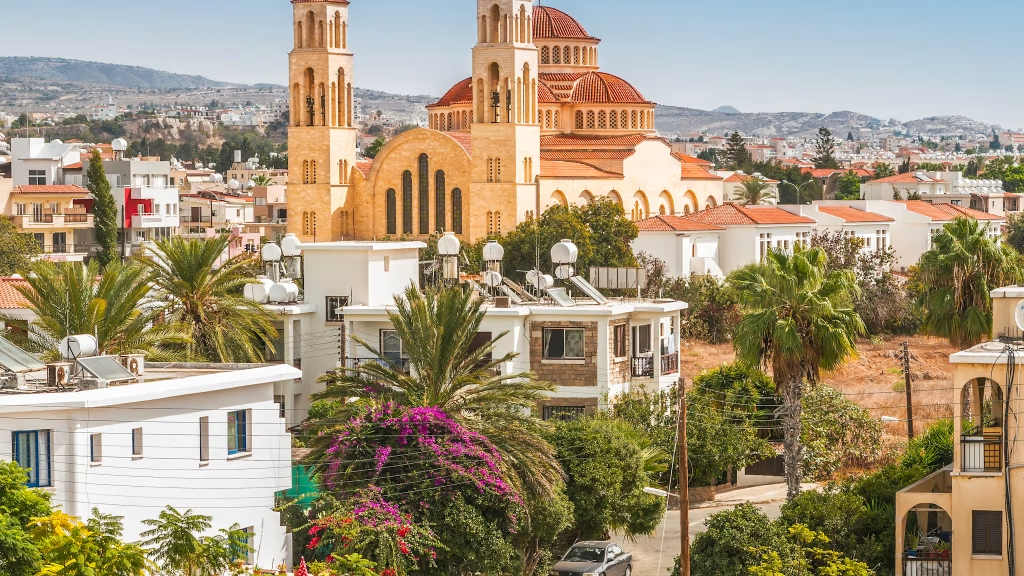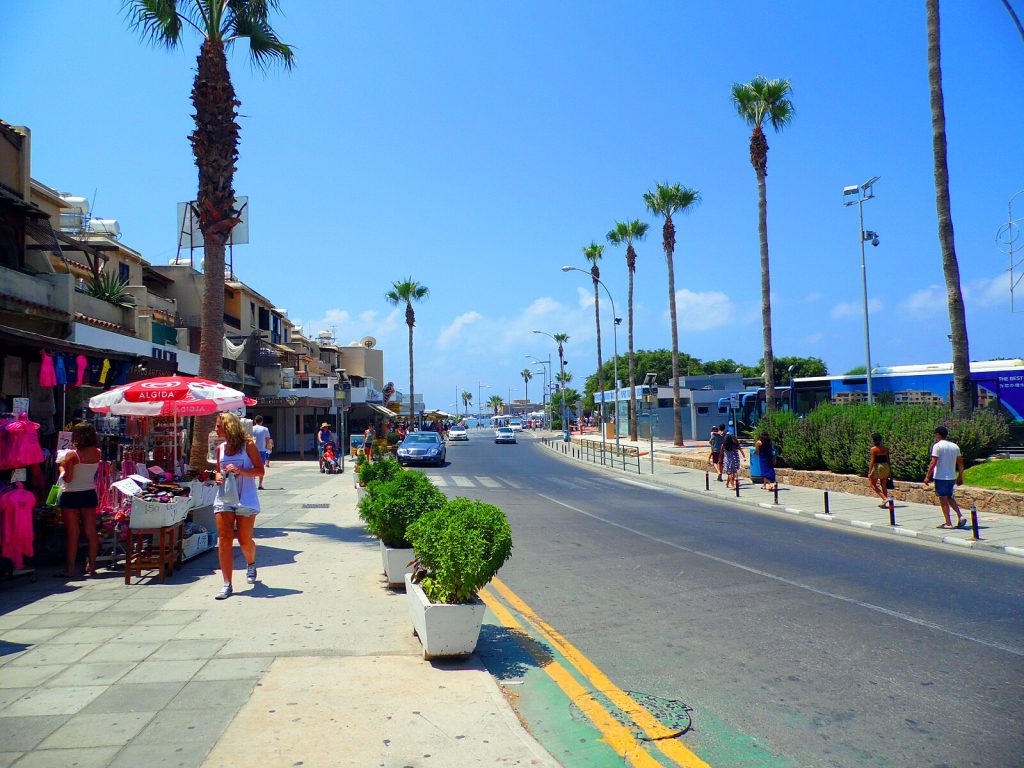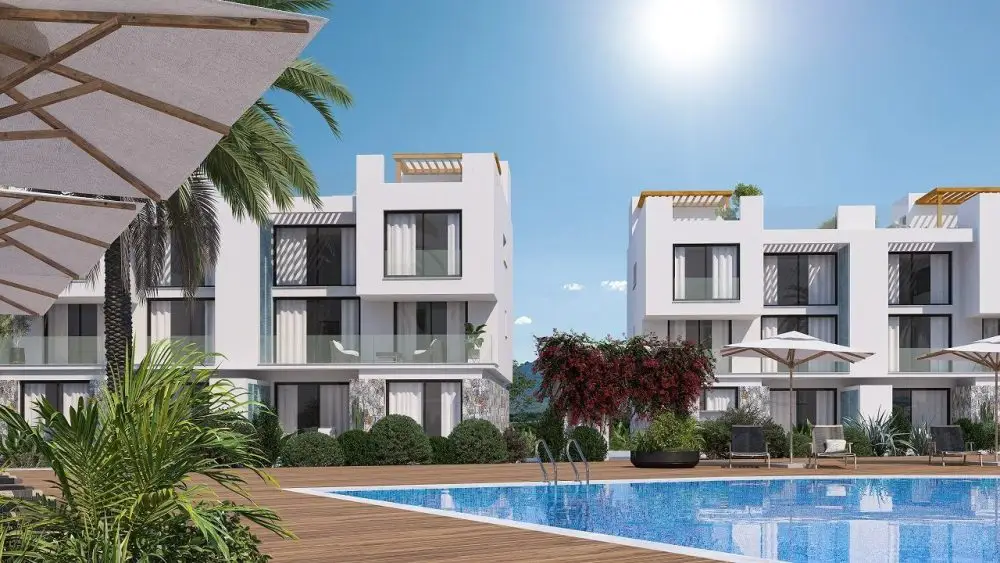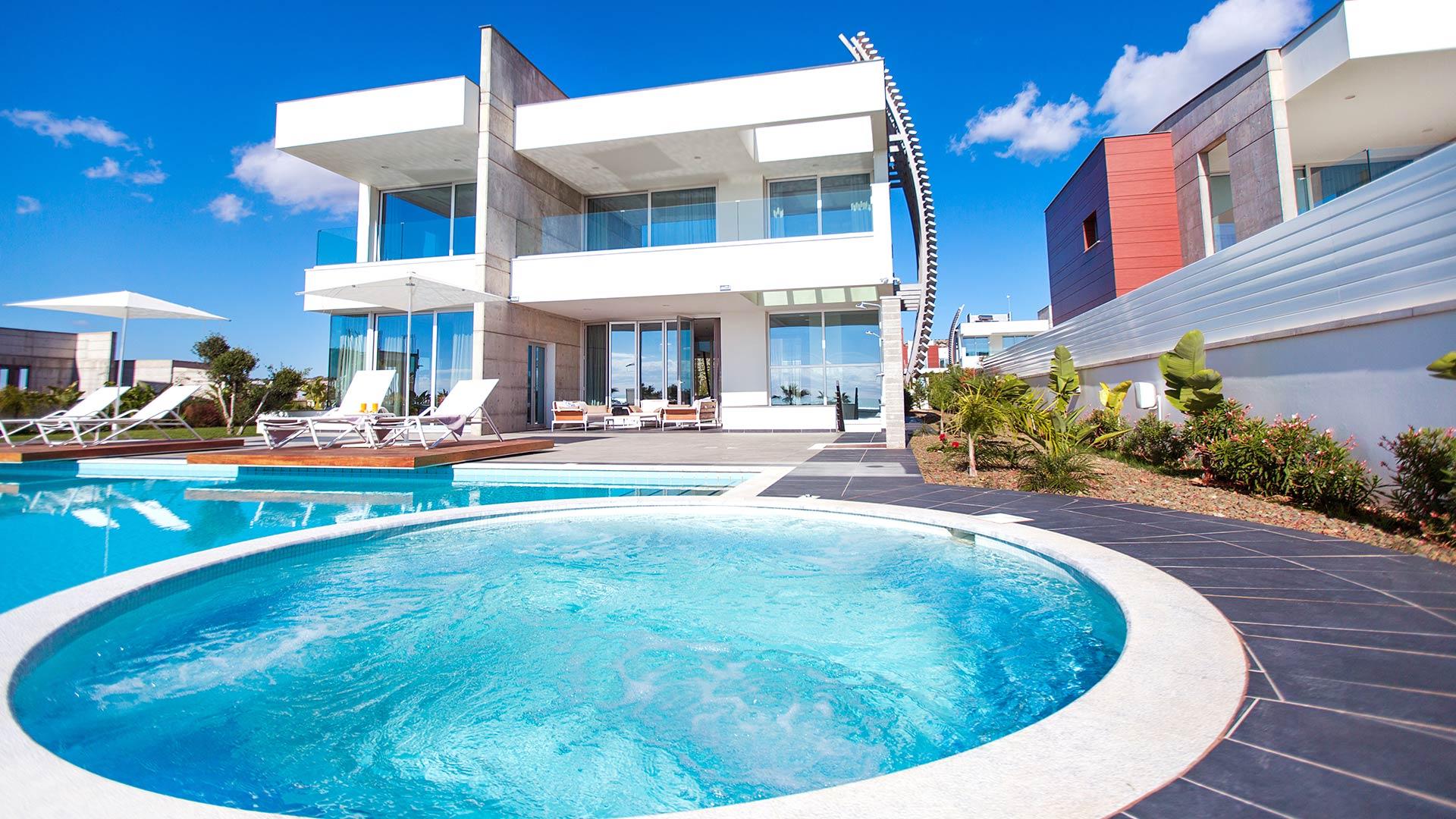Geography, climate, economy, property and infrastructure are the five anchors that consistently keep Cyprus on the list of the best cities for high quality of life. Architecture is another advantage, for it is a palette of Roman heritage, British urbanism and Mediterranean relaxation. Demand for property is on the rise: in the last three years, Cyprus’ residential transactions have increased by 26% and residential investment by 34%.
In the article we will tell you about the most attractive cities of the country where you can live comfortably.
Limassol – financial motor and comfort all year round
Limassol is leading the way as the most balanced city. It is home to European schools, offices of international companies and business incubators and forms the core of the Republic’s business activity.

The central district of Agios Nikolaos offers premium apartments with access to yacht marinas. At Limassol Marina, a square metre costs from €4,800. The districts of Pantheia and Germasoya form a more affordable middle segment.
The climate is stably warm: winter – about +15, summer – +30, humidity – no higher than 65%. The best cities in Cyprus for living are always based on the climate as a basic criterion, and in this aspect Limassol is the leader.
Paphos is one of the best towns in Cyprus to live in
 Paphos plays by the rules of visuals and aesthetes. UNESCO archaeological sites, upland villas, premium developments in the west of the city. The highest density of luxury housing outside the capital. The districts of Peyia and Tala offer private residences from €400,000.
Paphos plays by the rules of visuals and aesthetes. UNESCO archaeological sites, upland villas, premium developments in the west of the city. The highest density of luxury housing outside the capital. The districts of Peyia and Tala offer private residences from €400,000.
The city is listed as one of Europe’s cultural centres, investing in tourism and expanding port infrastructure. The beaches are Blue Flag certified and there are 320 days of sunshine a year.
Cyprus property prices are rising slowly but steadily: +4% in the last 12 months. Paphos is one of the best cities. For those who appreciate the balance between privacy and everyday life.
Larnaca – a strategic hub and an affordable alternative
Larnaca becomes a new player in the ranking of ‘best cities in Cyprus to live in’ thanks to infrastructural investments. The airport with international traffic, the rapidly developing Larnaka New Marina area, a €1.2bn project.
The property market is active: the cost of housing in the area of Drosia – from € 2,000 per square, in the tourist area of McKenzie – from € 3,200. The area is convenient for families, with a compact town structure, schools, parks and proximity to the beaches.
Larnaca offers a quieter but no less fulfilling lifestyle. User reviews point to the combination of quality service and moderate prices: coffee in the centre – €2, lunch – €10-12.
Nicosia – the capital and a mosaic of cultures
Nicosia is the only city in Europe with a divided capital. The southern part belongs to the Republic of Cyprus. The northern part is controlled by the unrecognised Northern Cyprus. This geopolitical peculiarity makes Nicosia not only a symbol, but also a place of contrasts.
The capital is actively developing the IT-cluster. There are programmes to support start-ups here. Housing rent is lower than in Limassol – from €650 for a one-room flat. Investors choose the resort to buy commercial property – 12% annual yield on new projects in the Strovolos area.
The best cities in Cyprus to live in include Nicosia as a centre for education and career opportunities. The climate is more continental – up to +38 in summer and around +10 in winter.
Ayia Napa – a resort in the style of “eternal summer”
Ayia Napa is a paradise for the tourist sector and rentals. The average hotel occupancy rate is 88% in summer, 60% in spring. It is a magnet for short term rental investments. Apartments near Nissi Beach rent for €100-150 per day.
The local authorities are developing a year-round resort: they are building indoor water parks, sports centres, developing gastronomic infrastructure. Out of season, the resort remains cosy: cafes are open, rent drops to €700 per month for a 2-bedroom flat.
Ayia Napa will suit those who consider the best cities in Cyprus for living from the point of view of short-term profit and holidays.
Northern Cyprus: an alternative outside the EU
It remains a territory with a special status. Despite the political non-recognition, the flow of buyers is steadily increasing, mainly due to low prices and flexible conditions for transactions. A square metre here costs from €1,000 in the areas of Famagusta and Kyrenia. Rental income – up to 9% per annum. Investors choose this region as a starting point for portfolio investments.

Living here is different from the rest of the Republic – less bureaucracy, lower taxes, more flexible market. The temperature in January rarely drops below +12, in summer it stays around +33. The best cities in Cyprus for living are often considered in a bundle. The main housing is in the Republic, investment housing – in the northern part of the island.
The best cities in Cyprus to live in: summarised in facts and figures
Cyprus is an island of opportunity, with each resort offering a different lifestyle. From high-end businesses to secluded holidays by the sea. Here you can find the perfect place to suit your goals. When choosing a city, it is important to consider not only the cost of living, but also the infrastructure, career prospects, level of service and atmosphere.
The choice depends on your priorities: business – Limassol, culture – Paphos, budget – Larnaca, career – Nicosia, rent – Ayia Napa.
Advantages of the resorts:
- Limassol: headquarters of international companies, international schools, premium housing, business infrastructure.
- Paphos: UNESCO heritage, luxury villas, developed tourism, silence and comfort.
- Larnaca: international airport, democratic prices, proximity to the sea, active development.
- Nicosia: business centre, affordable housing, strong IT sector, metropolitan status.
- Ayia Napa: ideal for rent, resort life, developed infrastructure for holidays.
Each of these cities offers different price levels, rhythm of life and growth prospects. The right choice will not only help you improve your quality of life, but also create a base for professional and personal development. The resort remains one of the most balanced relocation destinations in Europe.
Conclusion
 Cyprus maintains stable conditions for obtaining a residence permit through investment. The minimum threshold is from €300,000 in property. The demand for housing remains high: the demand for secondary housing increased by 12%, for new buildings – by 18%. Beaches and the sea remain arguments. The best towns in Cyprus for living retain access to coastal areas. The Republic guarantees security, economic stability and Europeanised law.
Cyprus maintains stable conditions for obtaining a residence permit through investment. The minimum threshold is from €300,000 in property. The demand for housing remains high: the demand for secondary housing increased by 12%, for new buildings – by 18%. Beaches and the sea remain arguments. The best towns in Cyprus for living retain access to coastal areas. The Republic guarantees security, economic stability and Europeanised law.
 en
en  de
de  ar
ar  es
es  nl
nl  hi
hi  fr
fr  it
it  pt
pt  el
el 









